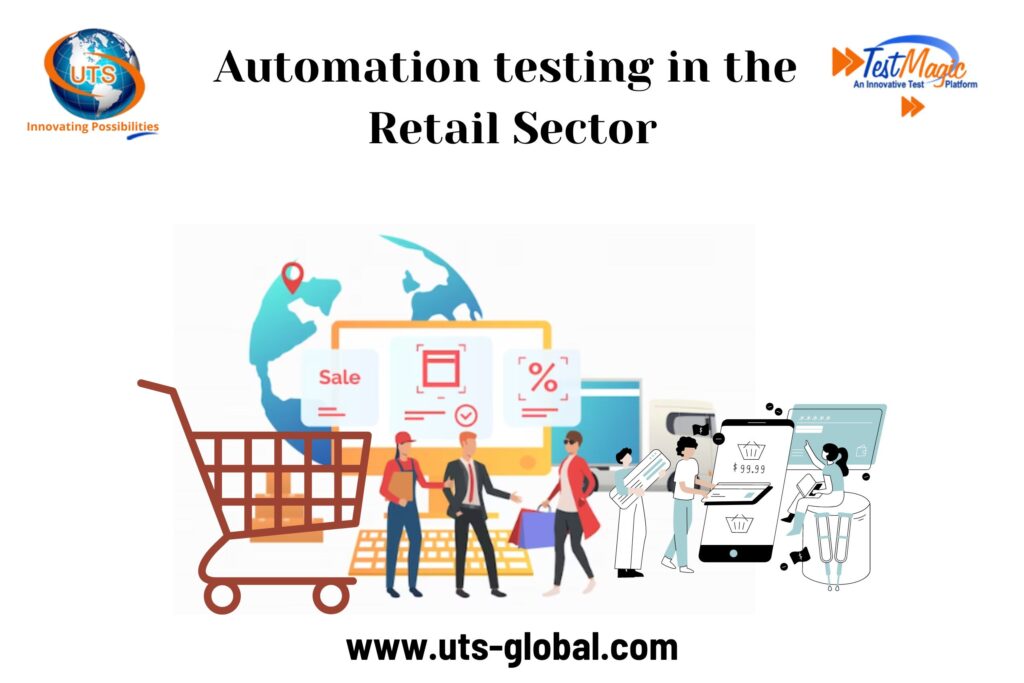
Automation testing in the retail sector can bring numerous benefits, helping to improve the quality, efficiency, and reliability of software applications and systems. Here are some key areas where automation testing can be applied in the retail industry :
E-commerce Website Testing : Automation testing can be utilized to ensure the smooth functioning of e-commerce websites. It can validate critical features like product search, shopping cart functionality, payment processing, order placement, and checkout processes. By automating these tests, organizations can quickly identify and fix any issues that could impact the user experience or lead to lost sales.
Mobile App Testing : With the increasing use of mobile devices for shopping, it’s crucial to thoroughly test retail mobile applications. Automation testing can cover scenarios such as user registration, login, product browsing, filtering and sorting, cart management, payment integration, and push notifications. This helps deliver a seamless and consistent experience to mobile users.
Inventory Management Systems : Retail businesses rely on accurate and efficient inventory management systems. Automation testing can verify functionalities like stock updates, product categorization, barcode scanning, purchase orders, stock transfers, and reporting. By automating these tests, organizations can reduce manual errors and ensure the accuracy of inventory data.
Point-of-Sale (POS) Systems : POS systems play a vital role in retail operations. Automating tests for POS systems can cover various aspects, including barcode scanning, price calculation, discounts, loyalty programs, refunds, and integration with payment gateways. Ensuring the reliability and accuracy of POS systems through automation testing can help prevent issues at checkout and ensure a smooth customer experience.
Integration and Middleware Testing : In the retail sector, numerous systems and applications need to integrate and exchange data seamlessly. Automation testing can be applied to test the integration and middleware layers, including APIs, data synchronization, messaging systems, and enterprise service buses. This helps identify any data inconsistencies, communication failures, or integration issues that could impact overall system performance.
Performance and Scalability Testing : Retail systems, especially during peak shopping seasons, need to handle high volumes of traffic and transactions. Automation testing can simulate heavy user loads and stress test the system to assess its performance and scalability. This helps identify bottlenecks, resource constraints, or performance degradation issues, enabling organizations to optimize their infrastructure and ensure a smooth shopping experience for customers.
Regression Testing : Continuous updates and changes to retail systems require comprehensive regression testing to ensure that new features or bug fixes do not introduce new issues. Automation testing can be utilized to automate repetitive regression test cases, allowing quick and reliable validation of the system’s stability and ensuring that previously working functionalities remain intact.
By adopting automation testing in the retail sector, organizations can reduce the time and effort required for testing, enhance software quality, and ultimately deliver a seamless and satisfying customer experience across various retail touchpoints.


